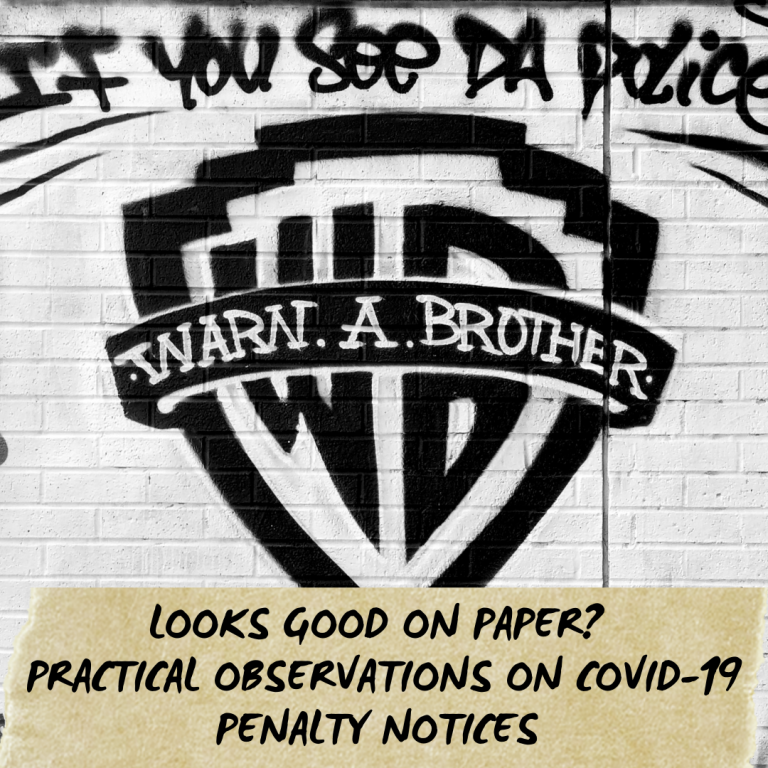With the growing number of Public Health Order infringements we have been dealing with, and the confusion they are creating, we thought we would treat you to a few practical tips.
Please note, in this post, we are not expressing a view as to the legality of the current situation – that will be a subject for a later post.
As things currently stand, the orders are on their face valid and breach of orders made under the Public Health Act 2010 (NSW) is a criminal offence that can attract heavy penalties.
NSW Police may issue on-the-spot fines to individuals such as:
- $1,000 for breaching a public health order
- $500 for failure to comply with a direction to wear or carry a mask (for those 18 years and older)
NSW Police may also issue fines to businesses:
Businesses that do not allow employees that can reasonably work from home to do so face a fine of up to:
- $10,000 for corporations
- $2,000 for individuals.
In the case of any corporation, the maximum penalty is $55,000 and a further $27,500 penalty may apply for each day the offence continues.
Businesses must also ensure they keep electronic records of people entering your premises and must provide those entering the premises the appropriate measures to do so.
Looking at the latest numbers from Revenue NSW, in July and August alone, more than 28,000 COVID fines had been issued.
We did the quick maths for you. That’s close to 13 times the numbers of COVID fines issued in 2020.
Law firms and legal centres have sent open letters to the NSW government calling for the wrongly issued fines to be withdrawn. They join bands of protesters taking issue with related mandates, such as “no jab no job”, including many other quasi-Government bodies, organised groups of essential workers, and even Fair Work Commission Members, but to no avail (yet). Some of you may have been tuning in to the current Supreme Court of NSW hearings over related issues, but again, they are yet to be determined.
To date, almost $24 million worth of COVID fines were issued in NSW – but only $1.6 million have been paid.
For those unfortunate enough to have been fined, but still holding the line, they need to bear in mind that, unless and until some legal development overrules their enforceability, they are exposing themselves to potential criminal punishment, and other practical problems like suspension of their driver’s license, cancellation of vehicle registration, or even garnishing their wages or bank accounts.
Should you choose to contest an infringement notice, and it is ultimately withdrawn or dismissed (i.e. you defend it and win), you may be entitled to a costs order from the Court to reimburse you for any legal costs incurred in defending it (although these are rare unless Police conduct was improper).
In determining whether challenging a fine at Court is worth it, the costs of contesting the matter at court, and the possibility of losing, must also be considered. Challenging the fine typically starts with an internal review which is done through the Police directly or Revenue NSW. If unsuccessful, the next step is to make a Court election.
Unfortunately, once you opt to go to court, the fine is no longer just a fine, it’s ultimately up to the presiding Magistrate to decide the penalty for the offence. Depending on the offence, you could be leaving with a criminal conviction, whereas generally, paying the fine without going to Court cannot result in a conviction and cannot be used against you later as an admission of guilt for the offence.
If you are strapped for cash, you can always organise a payment plan with Revenue NSW to ease the blow on your bank account.
If you or someone you know has recently been issued with an infringement notice, and the fine or circumstances warrant challenging it (financially or on principle), we encourage you to contact our office so we can advise you on the prospects of successfully challenging the notice.




